The word “budget” often conjures images of spreadsheets, restrictions, and giving up life’s little pleasures. But what if budgeting could give you more freedom, not less? For many UK residents, traditional budgeting approaches fail because they focus too heavily on cutting back rather than smart allocation. This guide will show you how to create a realistic budget that aligns with your lifestyle, helps you save money, and—most importantly—doesn’t leave you feeling deprived.
Mindset Shift: Budgeting ≠ Restriction
The first step to successful budgeting isn’t about numbers but perspective. Rather than viewing a budget as a way to “tighten your belt,” think of it as a tool for “smart spending.” A well-designed budget doesn’t dictate what you can’t have; it helps you allocate resources toward what truly matters to you.
“A budget is telling your money where to go instead of wondering where it went.” – John Maxwell
Many Brits abandon their budgets within weeks because they feel too constrained. The key difference between those who stick with budgeting and those who don’t often comes down to one thing: flexibility. Rigid budgets that don’t account for life’s realities—like spontaneous pub nights with mates or unexpected car repairs—are destined to fail.
Why Traditional Budgets Fail for Most People
Traditional budgeting advice often focuses exclusively on cutting expenses. While reducing unnecessary spending is essential, sustainable budgeting is more about alignment than restriction. When your budget reflects your values and priorities, it becomes a helpful tool rather than a burdensome chore.
Many UK residents struggle with budgeting because they:
- Set unrealistic targets (like cutting all takeaways when you work late three nights a week)
- Create overly complicated systems that are difficult to maintain
- Don’t build in room for occasional treats and spontaneity
- Focus solely on restriction rather than reallocation
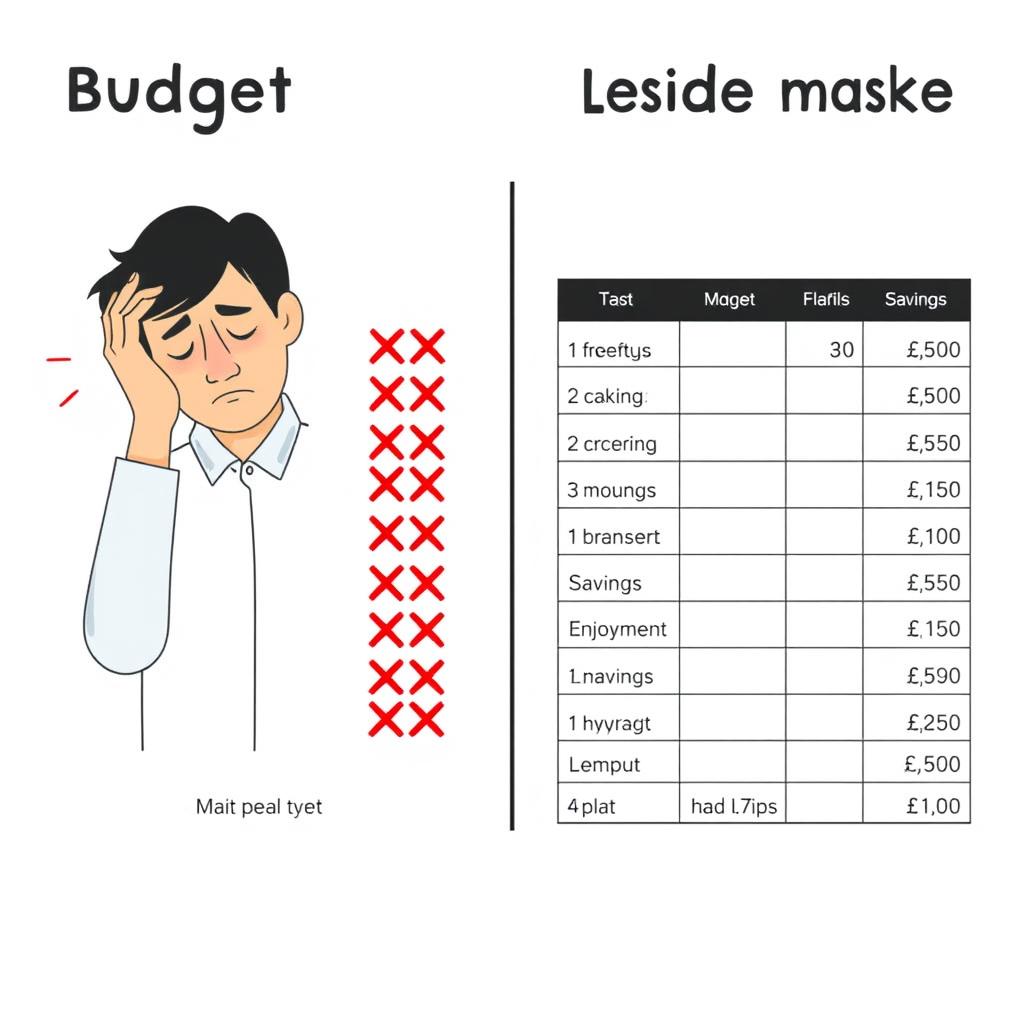
The Freedom Mindset: What Budgeting Gives You
Effective budgeting isn’t about saying “no” to everything—it’s about making intentional choices. When you know exactly where your money is going, you gain:
Financial Clarity
No more wondering if you can afford something or feeling guilty after purchases.
Reduced Stress
Less anxiety about bills, unexpected expenses, and financial surprises.
Increased Freedom
The ability to spend on what truly matters to you without worry.
Step-by-Step: Build Your First UK Budget
Creating a budget doesn’t have to be complicated. Follow these straightforward steps to build a budget that works for your lifestyle and financial goals.
-
Calculate Your After-Tax Income
Start with what lands in your bank account each month after tax, National Insurance, student loan repayments, and pension contributions. For those on PAYE, check your payslip for the exact figure. If you’re self-employed, calculate your average monthly income after setting aside money for taxes.
-
Track Your Current Spending
Before making a budget, understand where your money is currently going. Review your bank statements for the past 3 months and categorise your spending. UK-specific expenses to track include:
- Rent/mortgage payments
- Council tax
- Utility bills (gas, electricity, water)
- Broadband and mobile phone
- Groceries
- Transport (car payments, fuel, public transport)
- Subscriptions (Netflix, Spotify, gym memberships)
- Eating out and takeaways
- Entertainment and hobbies
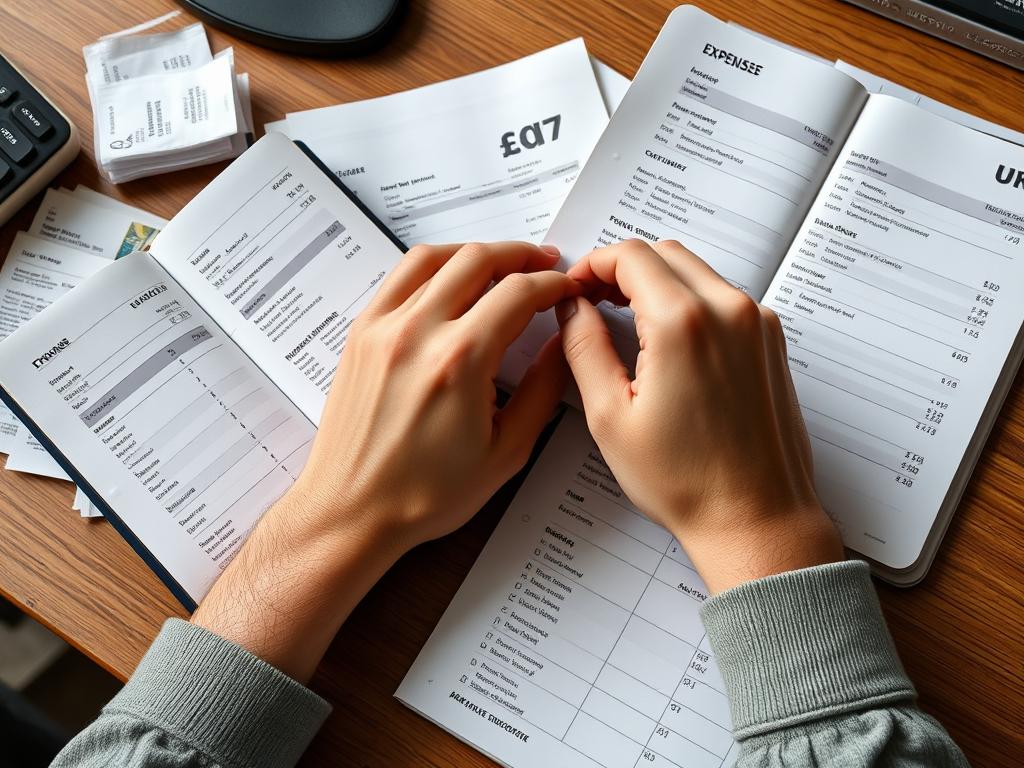
-
Apply the 50/30/20 Rule (UK Adjusted)
The 50/30/20 rule is a helpful starting point, but may need adjustment for UK living costs, especially in expensive areas like London or Edinburgh:
50% – Needs
Essential expenses like rent/mortgage, council tax, utilities, groceries, transport, minimum debt payments, and childcare.
UK Reality Check: In many UK cities, housing alone can consume 40%+ of income.
30% – Wants
Non-essentials that improve your quality of life: dining out, entertainment, hobbies, gym memberships, and non-essential shopping.
UK Reality Check: This category often needs adjustment based on your location and lifestyle.
20% – Savings/Debt
Emergency fund contributions, savings goals, investments (like ISAs), and debt repayments above the minimum.
UK Reality Check: Start with what’s realistic—even 5-10% is better than nothing.
-
Create Your Personalised Budget Plan
Based on your income and spending patterns, create a personalised budget that works for you. Here’s a sample monthly budget for someone earning £25,000 annually (approximately £1,750 monthly take-home pay):
Category Amount Percentage Needs (55%) £962.50 55% Rent/Mortgage £600 34.3% Council Tax £120 6.9% Utilities £100 5.7% Groceries £180 10.3% Transport £120 6.9% Phone/Broadband £50 2.9% Wants (25%) £437.50 25% Dining Out £120 6.9% Entertainment £80 4.6% Shopping £100 5.7% Subscriptions £50 2.9% Guilt-free Spending £87.50 5% Savings/Debt (20%) £350 20% Emergency Fund £100 5.7% Cash ISA £150 8.6% Debt Repayment £100 5.7% Note how this budget is adjusted from the standard 50/30/20 rule to accommodate higher UK housing costs (55% for needs instead of 50%).
-
Include a “Guilt-Free” Spending Category
One of the most effective ways to make your budget sustainable is to include a “guilt-free” spending category. You can spend money on absolutely anything without tracking or justifying it. Even £50-100 per month can make your budget feel much less restrictive.

Get Your Free UK Budgeting Template
Stop struggling with complicated spreadsheets. Our simple, customizable UK budgeting template includes categories for all British expenses, automatic calculations, and a built-in “guilt-free” spending tracker. Start budgeting without the headache!
Tools to Automate & Simplify Your Budget
The right tools can make budgeting significantly easier. Here are some UK-specific options to help you track spending, save money, and stay on budget without constant manual effort.
UK Banking & Budgeting Apps
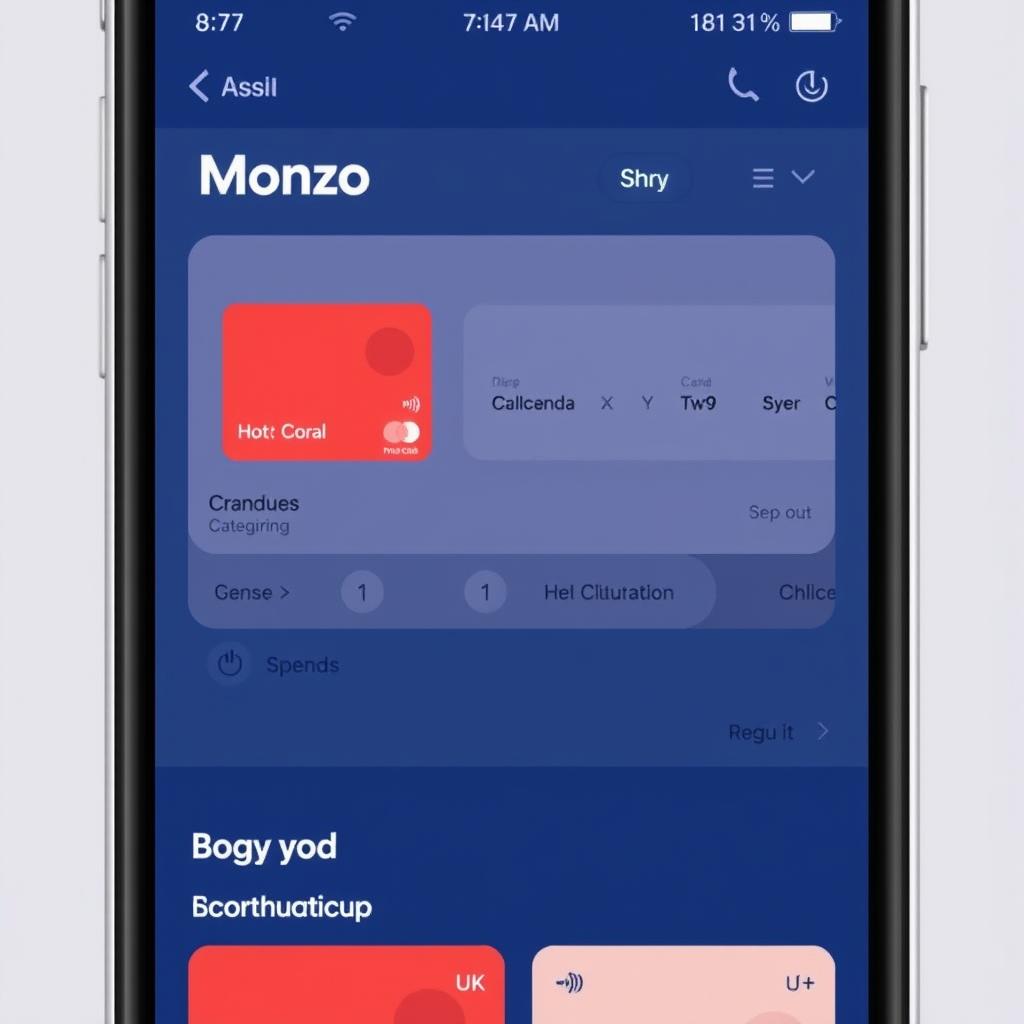
Monzo
It offers “Pots” for separating money, automatic spending categorisation, and budgeting tools built directly into your current account.
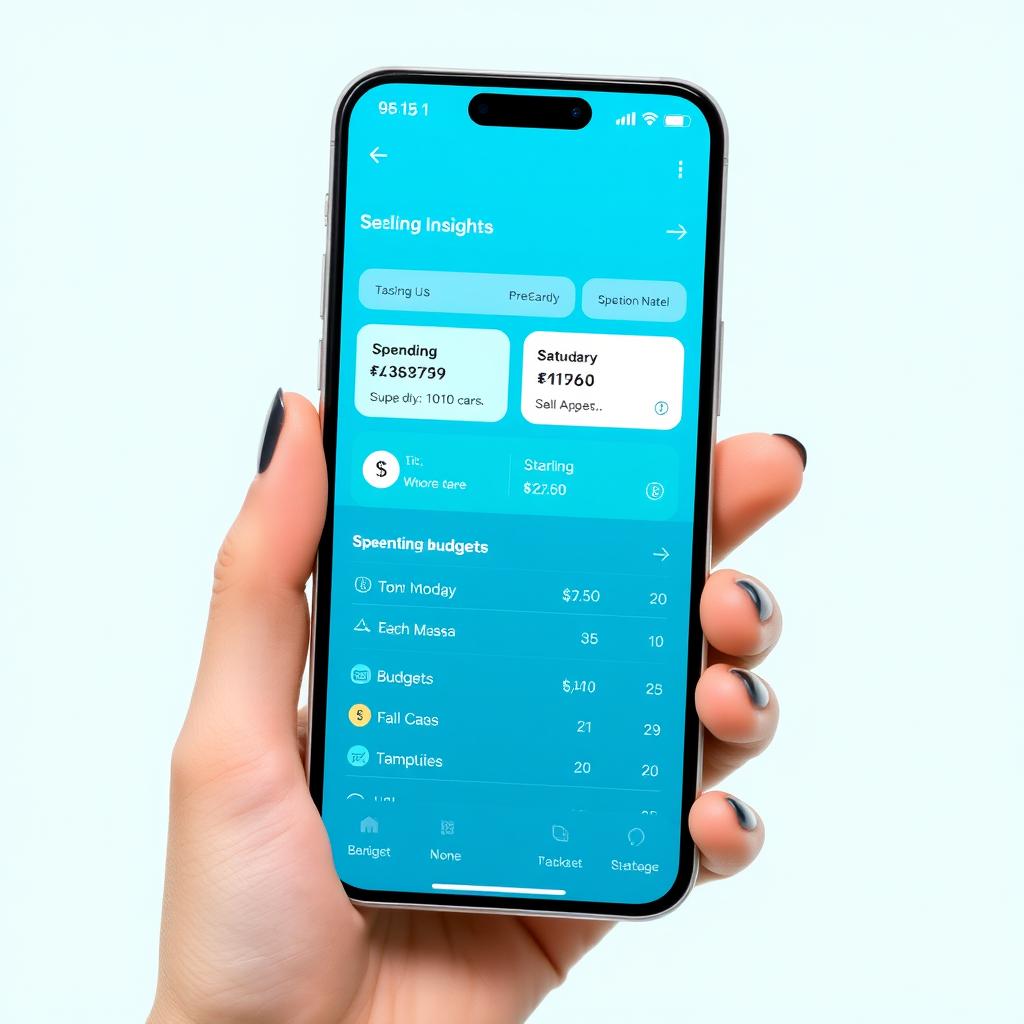
Starling Bank
Features “Spaces” for separating funds, spending insights, and the ability to round up transactions to save automatically.
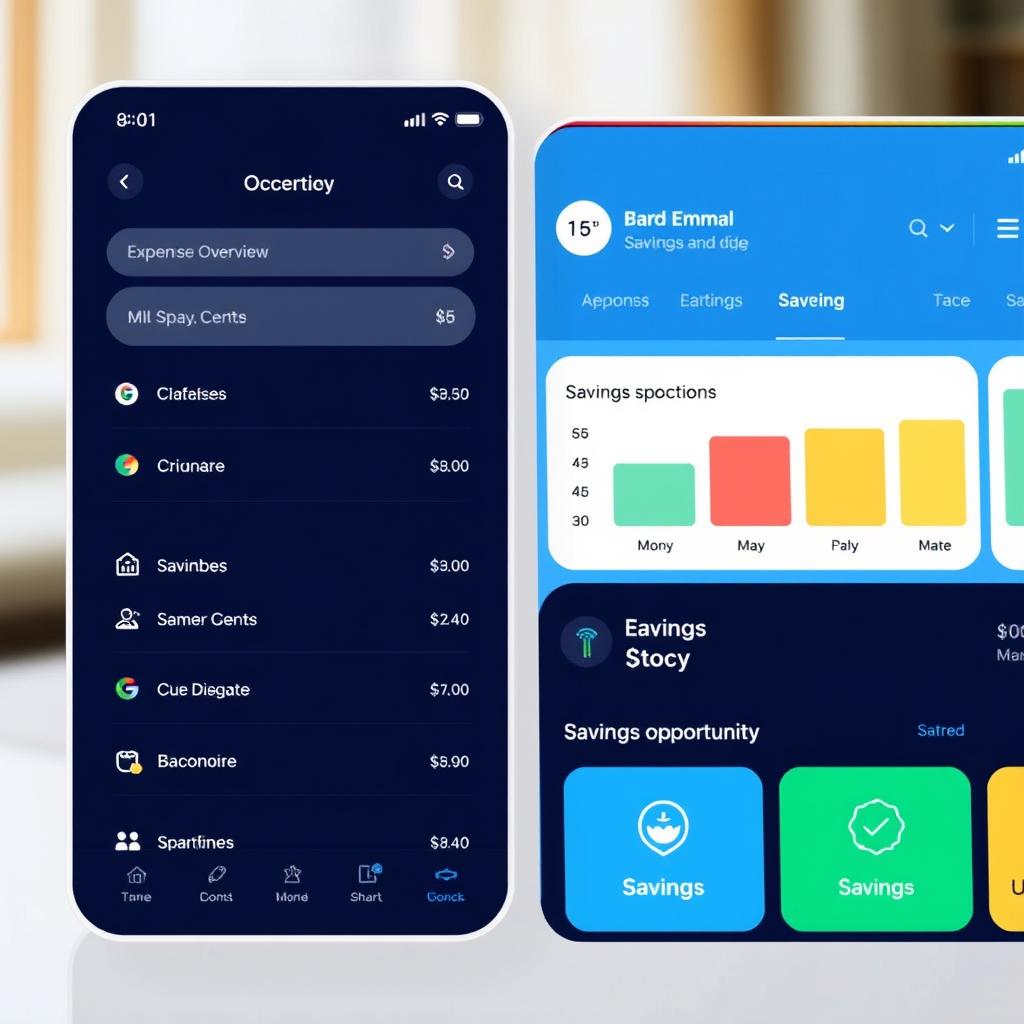
Emma
Connects all your accounts in one place, identifies subscriptions, and highlights opportunities to save on bills and banking fees.
UK Money-Saving Tools
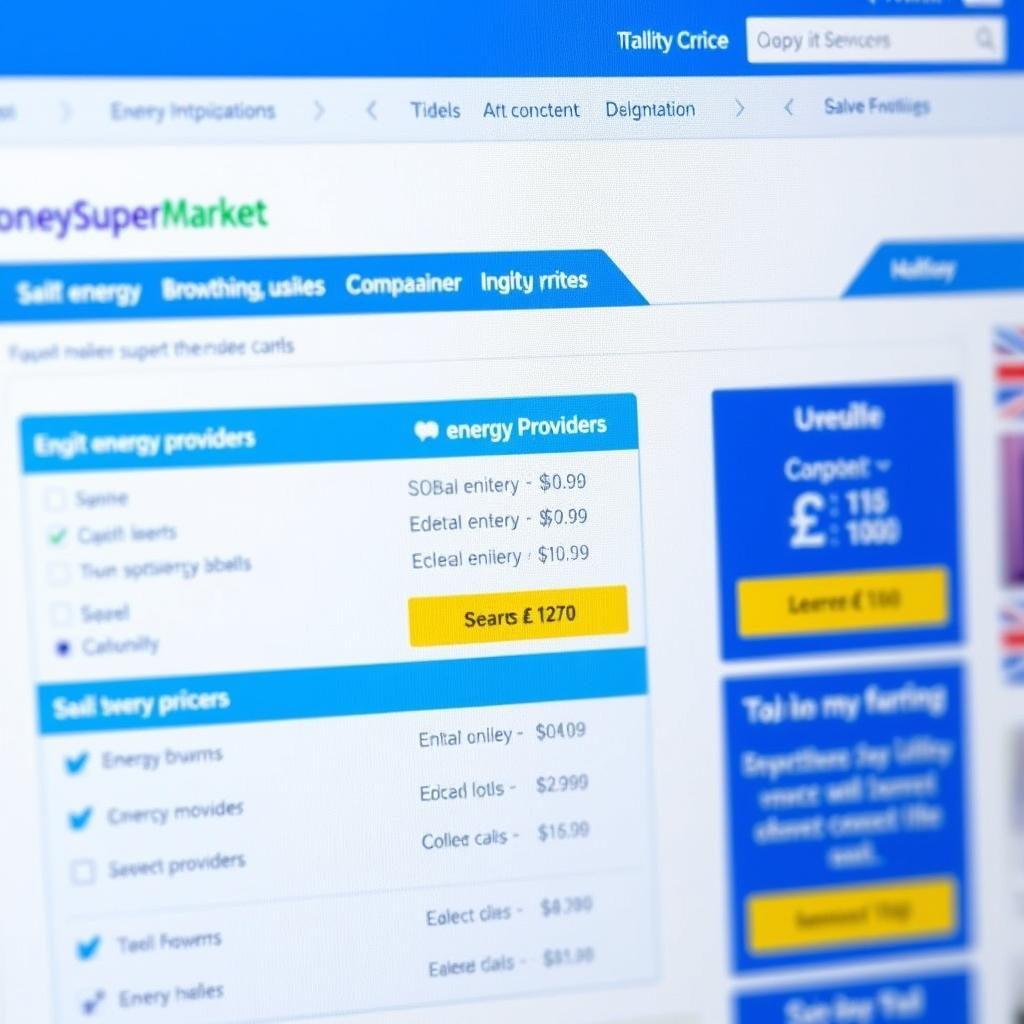
MoneySuperMarket
Compare prices from energy bills to insurance, helping you reduce your fixed expenses.
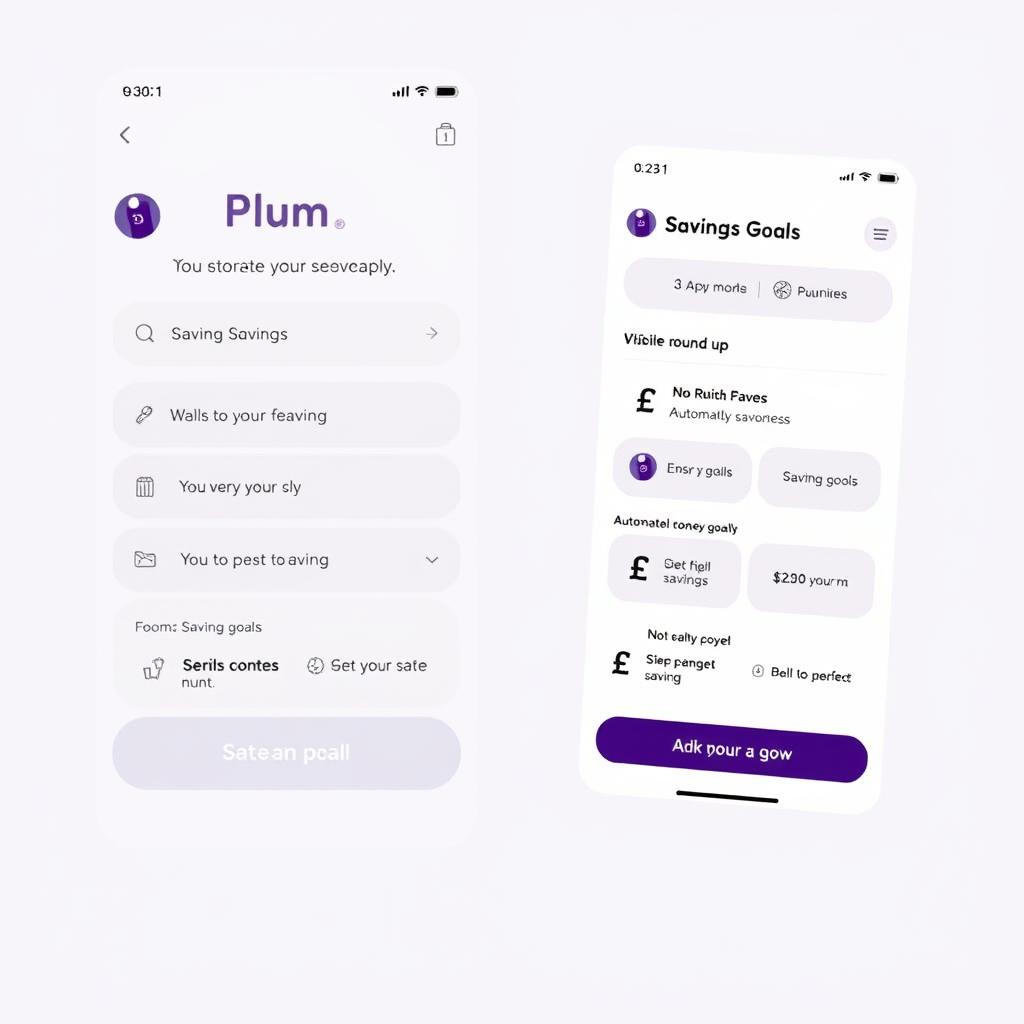
Plum
Automatically sets aside small amounts based on your spending habits and offers purchase round-ups.
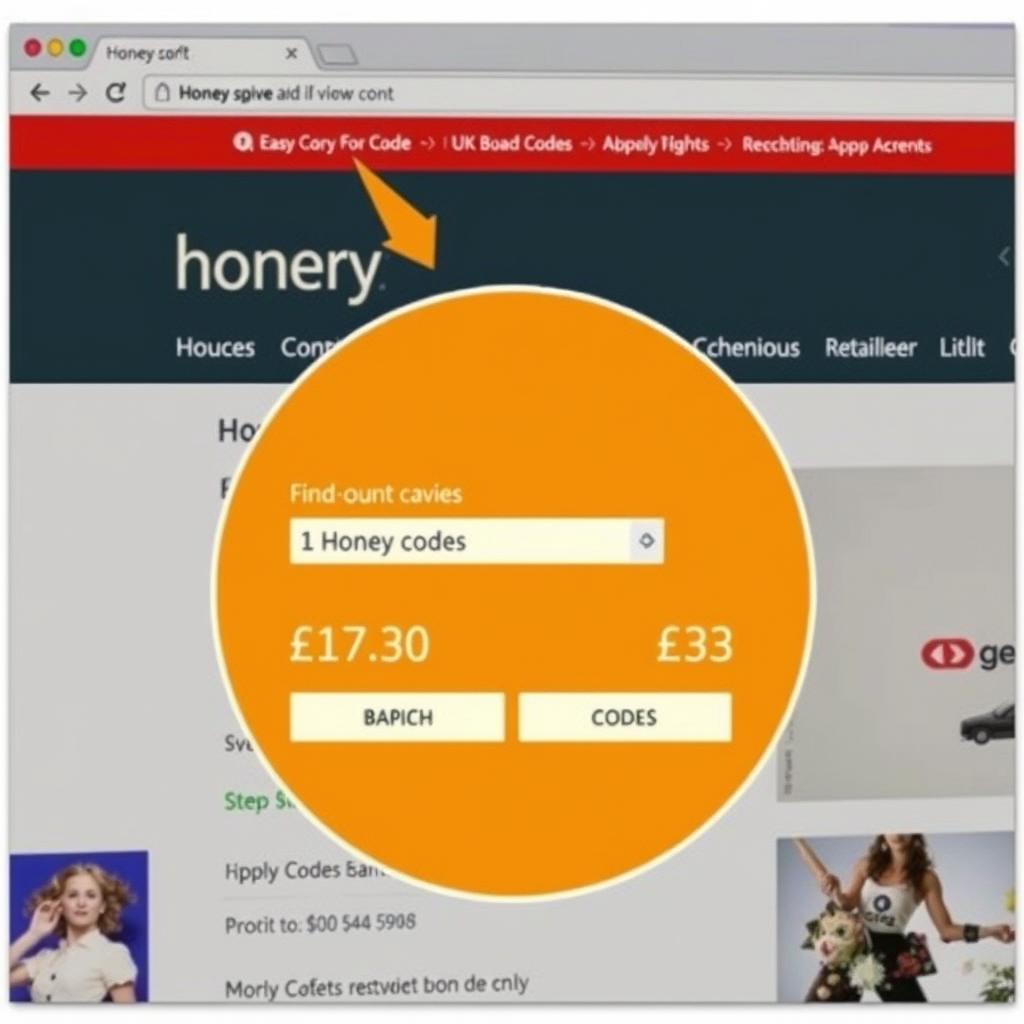
Honey
A browser extension that automatically finds and applies discount codes when you shop online at UK retailers.
Automate Your Budget
Set up your accounts to do the budgeting work for you:
- Schedule bill payments for just after payday to ensure necessities are covered first
- Set up standing orders to move money to savings accounts on payday automatically
- Use separate accounts for different purposes (bills, spending, savings)
- Enable spending notifications on your banking app to stay aware of outgoings
- Schedule a monthly “budget review” in your calendar to stay on track
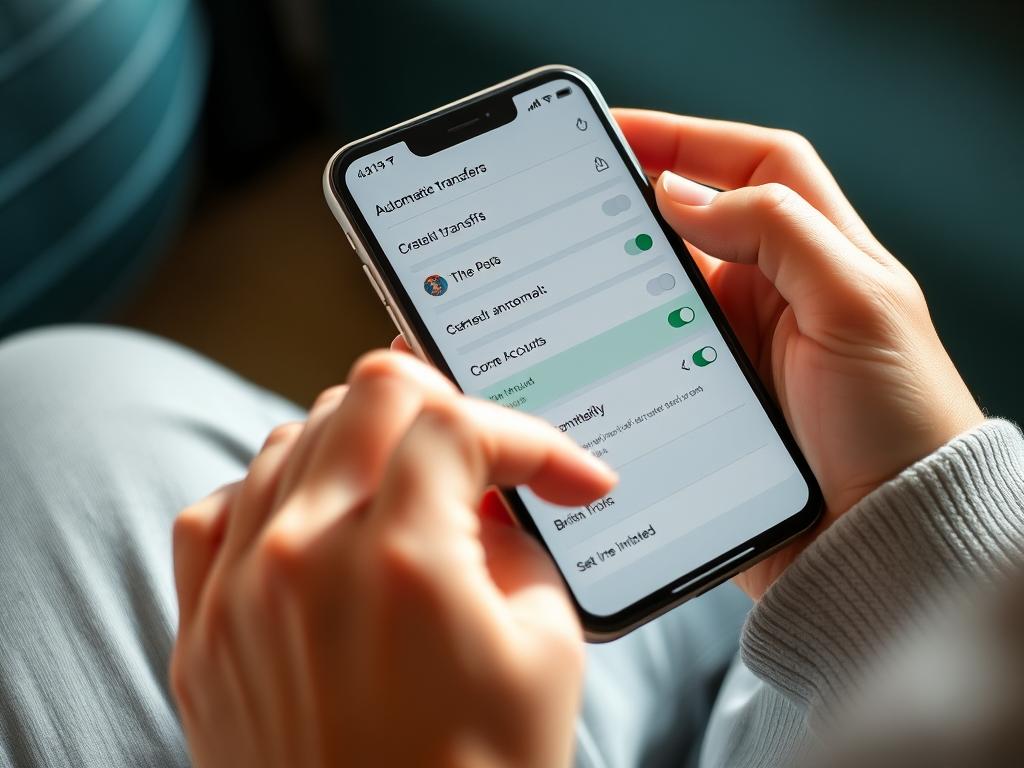
Saving Without Sacrifice: UK-Specific Tips
Saving money doesn’t have to mean giving up everything you enjoy. These UK-specific strategies can help you reduce expenses while maintaining your quality of life.
Smart Grocery Shopping
- Shop at Aldi or Lidl for significant savings compared to the “Big Four” supermarkets
- Use supermarket loyalty schemes like Tesco Clubcard or Nectar points
- Try “downshifting” from branded to supermarket own-brand products
- Shop at local markets for fresh produce, often at better prices than supermarkets
- Plan meals around seasonal British produce, which is typically cheaper

Reduce Fixed Expenses
- Check if you qualify for Council Tax discounts (single occupancy, student exemptions)
- Switch energy providers using comparison sites when your fixed tariff ends
- Review your broadband and mobile contracts annually for better deals
- Consider water-saving devices if you’re on a water meter
- Evaluate your TV package – could you switch to streaming services instead?
UK Money-Saving Tip: The average UK household can save over £300 annually by switching energy providers and broadband contracts when deals expire.
Free and Low-Cost UK Entertainment

Cultural Activities
Most UK national museums and galleries are free, including the British Museum, National Gallery, and Tate Modern. Many offer free guided tours and activities.

Outdoor Adventures
Explore the UK’s national parks, coastal paths, and public footpaths. Download free walking routes from the National Trust or Ordnance Survey.

Library Services
UK libraries offer free books, e-books, magazines, and often free internet access. Many also host free events, clubs, and workshops.
Case Study: Budgeting Success Without Feeling Deprived
Sarah, a 28-year-old marketing assistant from Manchester who earns £26,000 annually, constantly runs out of money before payday. After tracking her spending for a month, she discovered she was spending over £300 on takeaways and impulse purchases.
Rather than cutting these out completely, Sarah implemented a realistic budget that included:
- A dedicated “fun money” account with £150 monthly for guilt-free spending
- Meal planning and batch cooking on Sundays, reducing her grocery bill by £80
- Switching energy providers and mobile contract, saving £45 monthly
- Setting up automatic transfers of £200 to her emergency fund on payday
- Using Monzo’s round-up feature to save an additional £30-40 monthly, painlessly
Sarah built a £1,200 emergency fund within six months while enjoying weekly takeaways and occasional shopping trips. The key was creating a realistic plan that acknowledged her priorities rather than trying to eliminate all non-essential spending.
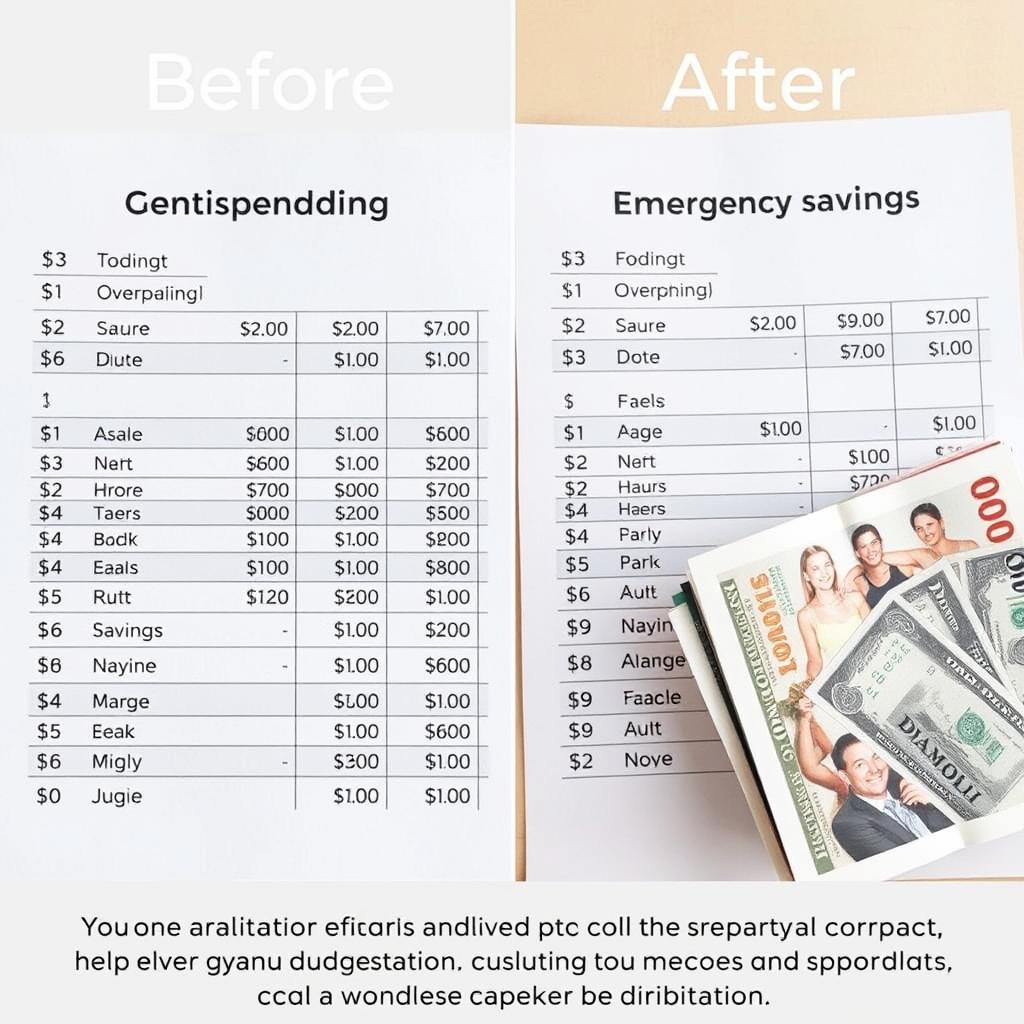
“I used to think budgeting meant giving up everything I enjoyed. Now I realize it’s about making intentional choices. I actually feel more freedom because I know exactly what I can spend without worry.”
– Sarah, Manchester
UK-Specific Savings Options
Once you’ve created a sustainable budget, consider these UK-specific savings and investment options to grow your money:
Cash ISAs
Tax-free savings accounts that allow you to save up to £20,000 per tax year without paying tax on interest earned. Options include easy access, fixed-rate, and lifetime ISAs.
Best for: Emergency funds and short to medium-term savings goals.
Help to Save
Government scheme for low-income earners receiving Universal Credit or Working Tax Credit. Save up to £50 monthly for 4 years and receive a 50% bonus on your highest balance.
Best for: Those eligible who want to build savings habits with government support.
Premium Bonds
Instead of earning interest, each £1 bond is entered into a monthly prize draw with tax-free prizes ranging from £25 to £1 million. You can cash out anytime.
Best for: Those who have maxed out ISAs or enjoy the lottery-like element.
UK Savings Tip: Consider setting up a regular savings account with your bank for short-term goals. Many UK banks offer higher interest rates (2-5%) on monthly contributions between £25-£300, perfect for holiday funds or Christmas savings.
Frequently Asked Questions About Budgeting for Beginners
How do I budget for irregular expenses like car MOTs or Christmas?
Create “sinking funds” for predictable irregular expenses. Divide the total annual cost by 12 and set aside that amount monthly. For example, saving £600 on Christmas saves £50 monthly in a dedicated Christmas fund. UK-specific irregular expenses to plan for include MOTs, car tax, home insurance, and council tax (if you don’t pay monthly).
What if my rent takes up more than 30% of my income?
This is common in many UK cities, especially London. Adjust your 50/30/20 ratio to reflect your reality—perhaps 60/20/20 or 65/20/15. Focus on what you can control: reducing other fixed expenses, increasing income through side hustles, or considering house-sharing to reduce costs.
Should I pay off debt or save first?
For UK residents, follow this order: First, build a small emergency fund of £1,000. Then, focus on high-interest debt, such as credit cards and payday loans. Once those are cleared, build your emergency fund to 3-6 months of expenses. Low-interest debt, like student loans, can often be paid according to the standard schedule while you focus on saving.
How do I budget for variable income if I’m freelance or self-employed?
Budget based on your lowest monthly income from the past year. Set aside 20-30% for taxes in a separate account. In months when you earn more, allocate the extra to your tax fund, emergency savings, and then “income smoothing” for leaner months. Consider using accounting software like FreeAgent or QuickBooks that helps UK freelancers track income, expenses, and tax obligations.
Budgeting: Your Path to Financial Freedom
Budgeting isn’t about restriction—it’s about empowerment. By creating a realistic plan that aligns with your values and includes room for enjoyment, you’re taking control of your financial future without sacrificing your present happiness.
Remember that the perfect budget is one you can stick to. Start small, be flexible, and adjust as needed. Even imperfect budgeting is better than no budgeting at all. The peace of mind that comes from knowing exactly where your money is going—and having a plan for your financial future—is truly priceless.
Begin your budgeting journey today with our free UK budgeting template, and take the first step toward financial confidence without feeling restricted.
Ready to Take Control of Your Finances?
Download our free UK budgeting template and start creating a budget that works for your lifestyle, not against it.
